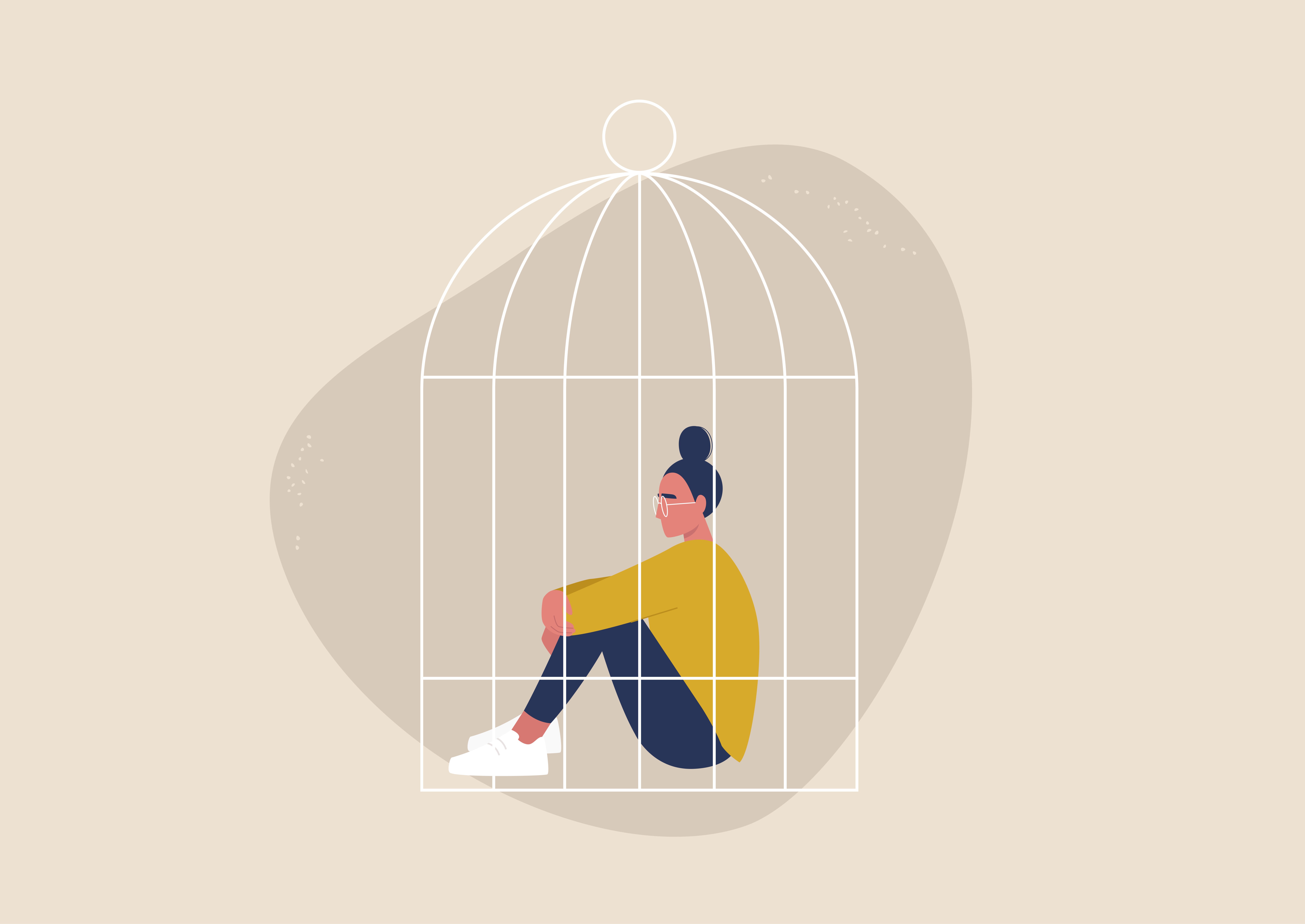What to do if you’ve hit the lockdown wall
Lockdown 3.0 has been the lockdown of pandemic fatigue, now Natasha Preskey looks at ways to improve your state of mind


It has been almost a year since Boris Johnson announced the first national lockdown for England on the evening of Monday 23 March 2020.
Since then, we’ve lived under a variety of restrictions, with millions of people unable to see friends, family and partners, and three nationwide lockdowns to endure. Thousands of people have also been made redundant or face uncertainty over their financial future.
The same events we cancelled one by one last year now, yet again, look unlikely to go ahead until at least 2022.
We’re still no clearer about when the third lockdown, which began in January, may end - Boris Johnson has promised to lay out a roadmap on 22 February if case numbers continue falling.
But even once lockdown ends there is no clear indication of when we might see an end to social distancing, or any return to the sort of normality we experienced in the before times. Now, for many people, the day is only punctuated by closing a laptop or cracking open a can.
If work stress, childcare, financial anxieties, loneliness or pure boredom have left you feeling like you’ve hit a wall this lockdown, you’re far from the only one. We asked experts for advice on how to improve your mood.
Recognise that this feeling is very common
Psychotherapist and couples counsellor Hilda Burke says her clients have found this period of time the hardest of the pandemic. “It’s a challenging time for people anyway, but, adding in the relentless lockdown without a clear end in sight, I think it’s quite a deadening time for a lot of people,” she tells The Independent.
The therapist says she’s seen a “noticeable slump” in mood in both her clients and her peers, and advises recognising that this feeling is normal, and far from a personal failing.
“I have clients saying, ‘I don’t understand why I’m so tired, I don’t understand why I’m in a mood’,” she says. “I have to remind them that we are in the midst of a difficult time as a society.”
Burke says we’ve become so accustomed to living in lockdown or under restrictions that we sometimes forget what a strange experience we’re collectively living through.
Simply living our day-to-day lives during this period is taking a massive “energetic toll” on us, she explains, and she warns against “judging ourselves” or worrying too much if we don’t feel focused or motivated.
Ditch Zoom for a phone call
Checking in on our loved-ones is more important than ever but a year of staring at our own faces while talking to friends, family and colleagues has left many of us with ‘video call burnout’.
Psychotherapist Andre Radmall recommends sticking to old-fashioned phone calls to reduce stress and self-consciousness.
“It can be a relief to speak by phone where it doesn’t matter what you look like”
“I would suggest diarising calls to [friends and family] on the telephone,” he says. “People are tired of the sense of being under constant scrutiny that comes with communication platforms. It can be a relief to speak by phone where it doesn’t matter what you look like.”
Claim back your commuting time

In 2018, the Trades Union Congress (TUC) calculated that the average Brit spent over 58 minutes commuting each day (a figure that rose to one hour 19 minutes for Londoners). Data from the Office for National Statistics (ONS) during the first lockdown suggested almost half of people were doing at least some of their work from home.
As a result, many of us now get a little extra time in our days, but it certainly might not feel that way. Burke suggests trying to claim this time for yourself to help you feel more in control. This could be by reading a book you enjoy, taking some exercise, doing a hobby or taking an online course.
“We can just feel like we’re at the mercy of the lockdown, we’re at the mercy of when we get a vaccine,” she says. “Of course, we are all impacted by those things. But there is a lot that we can do that is independent of the pandemic of the vaccine.”
But keep your goals small and realistic
Taking back our own time should be a joy rather than something to further constrain us. Radmall says a common obstacle for his clients is setting unrealistic goals.
“We may think we should be getting fit and running marathons. We look at the amazing food others show on Instagram,” he says. “Think what practical goal you want to achieve today and then consider whether it’s realistic and then just focus on that. And if it doesn’t happen, be kind to yourself.”
Make space for the daft and absurd
Often, lockdown leaves little room for light-heartedness. Parties and festivals are still a pipe dream right now but Radmall says it can still be a helpful exercise to take three minutes out of your day to do something “silly, childish and playful”.
“Pretend for three minutes that nothing matters and you are just celebrating being alive”
“However you feel, get up and dance to your favourite music,” he suggests. “Pretend for three minutes that nothing matters and you are just celebrating being alive. In less than three minutes your mood can be changed by dancing.”
Treat your walk as an exercise in mindfulness
Let’s face it, we’ve done a lot of walking in the last 12 months. It’s definitely worth keeping it up though, says Radmall, and there are ways to get more out of you walk moodwise.
“A top mindfulness tip is to look up and notice the trees, sky and environment around you,” he says. “This can help us get out of our worried heads for a bit.”
For Londoners looking to mix up their walk, the Greenground Map may offer some inspiration. This unofficial tube map for walkers provides distances between outdoor spaces like forests, parks and cemeteries instead of stations.
Join our commenting forum
Join thought-provoking conversations, follow other Independent readers and see their replies
Comments
Bookmark popover
Removed from bookmarks